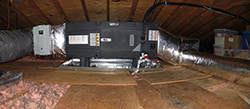A residential air handler usually contains a blower, air filter and coil. It is typically set inside the home and operates with both the heating and cooling components of your HVAC system. If you take a quick look at an air handler, it may closely resemble a furnace. Air handlers can run with either an air conditioner or a heat pump and contain the indoor coil, which is used to cool and heat your home depending on which system it’s running with.
 If you’re searching for a conventional furnace or air conditioner, you may never need to know what an air handler is because it’s likely you won’t need one. However, if you’re in the market for an electric heat pump, it’s helpful to know that an air handler will probably be a part of your home’s HVAC system.
If you’re searching for a conventional furnace or air conditioner, you may never need to know what an air handler is because it’s likely you won’t need one. However, if you’re in the market for an electric heat pump, it’s helpful to know that an air handler will probably be a part of your home’s HVAC system.
An air handler coordinates with both heating and cooling equipment. Whether you use an air conditioner and furnace for seasonal home comfort needs or whether you have a split system heat pump, the air handler will facilitate the movement of air into the temperature moderation area and through the ducts.
In some homes, the air handling equipment will be installed in a walled area, visible only when your access panel is opened and your filter removed. In other settings, an air handler may be completely visible, housed in a basement or garage space.
Air handler replacement:
The air handler in your home’s HVAC system can last between 10 to 20 years based on a variety of issues. Intensity of heating and cooling activity during the year may play an important role in the longevity of the unit. Your interest in a system upgrade to achieve better comfort and efficiency levels in your home may prompt you to update your air handling equipment. A system failure will dictate the need for a new unit as well.
In many cases, either the inside or outside unit of a split system will fail, and homeowners may attempt to replace only the portion that has failed. However, system components are generally designed to work together, meaning that a replacement of both inside and outside units is the best way to achieve optimum performance from your equipment. Failure of some components in your handler could be addressed through the installation of new parts. However, this will require the assistance and evaluation of an HVAC professional.
Your heating and cooling equipment can wear out over time, but preventive maintenance can extend the life of your air handler while improving your home’s energy performance. Because your air handler houses critical system components, it’s imperative that proper air filter management and system cleaning are conducted. You should start each heating and cooling season with a new filter and also schedule a professional cleaning of your coils, blower and other system components.
